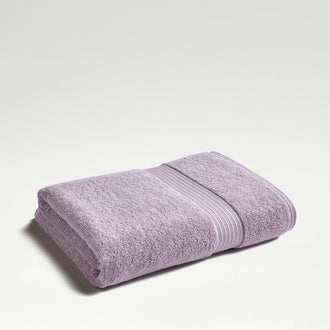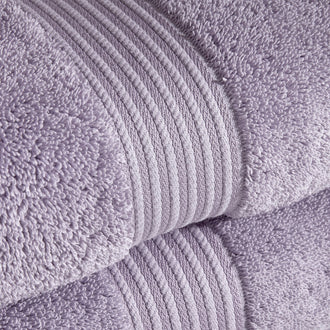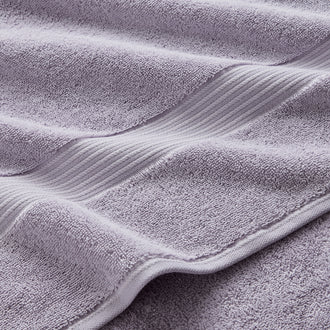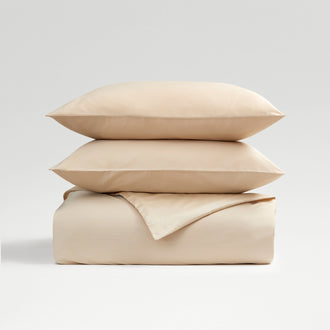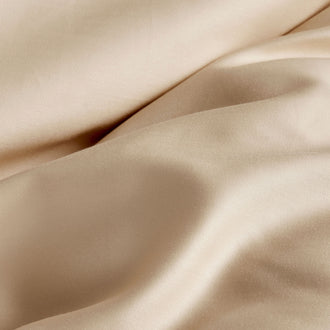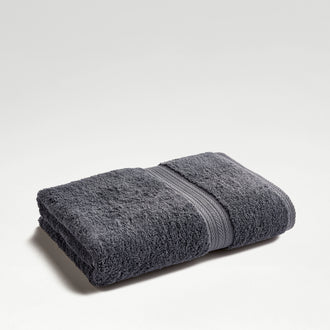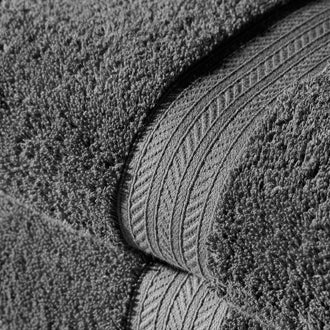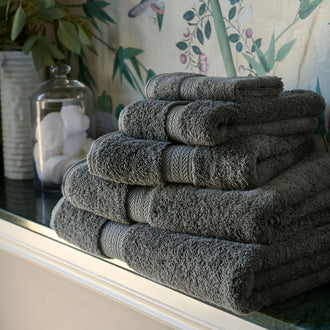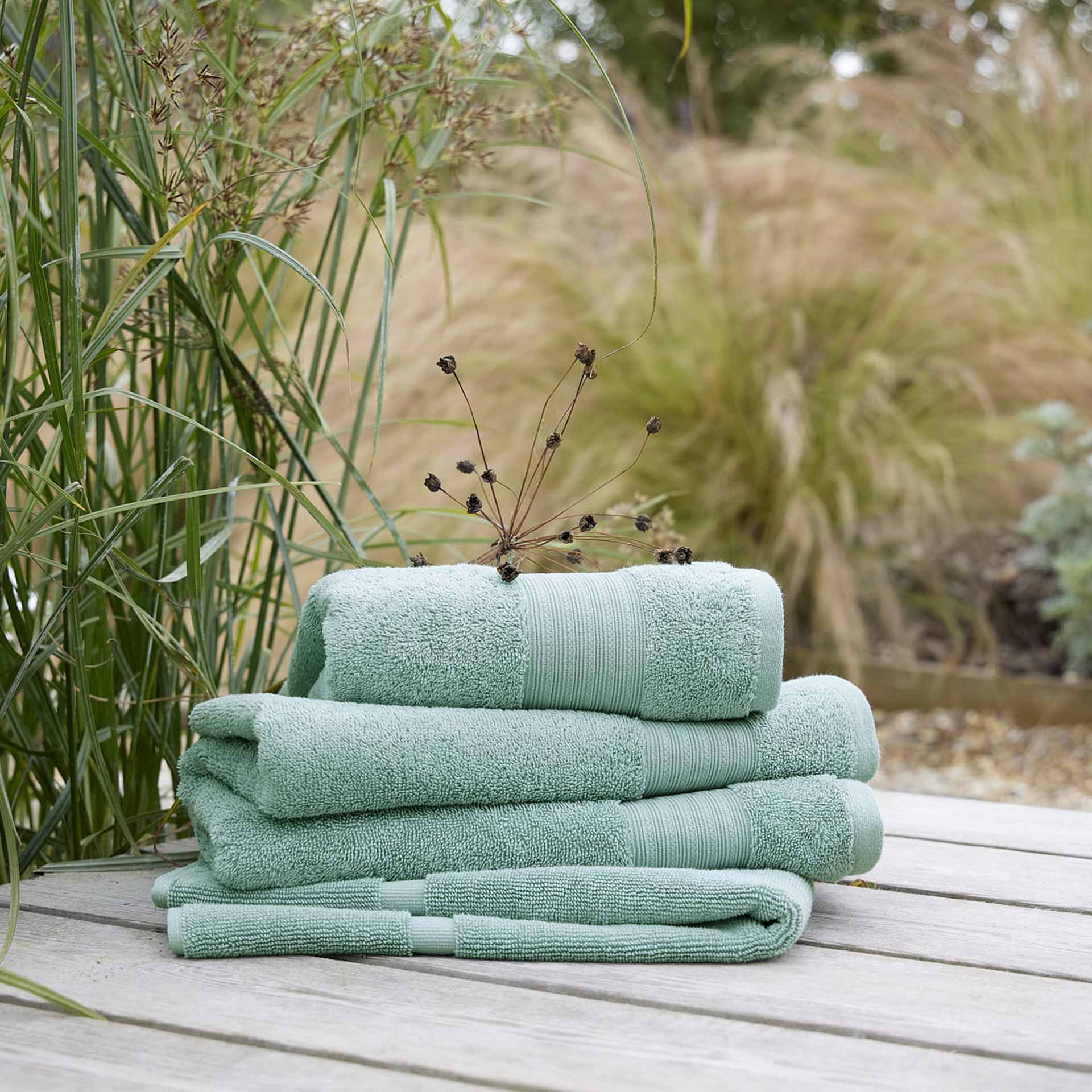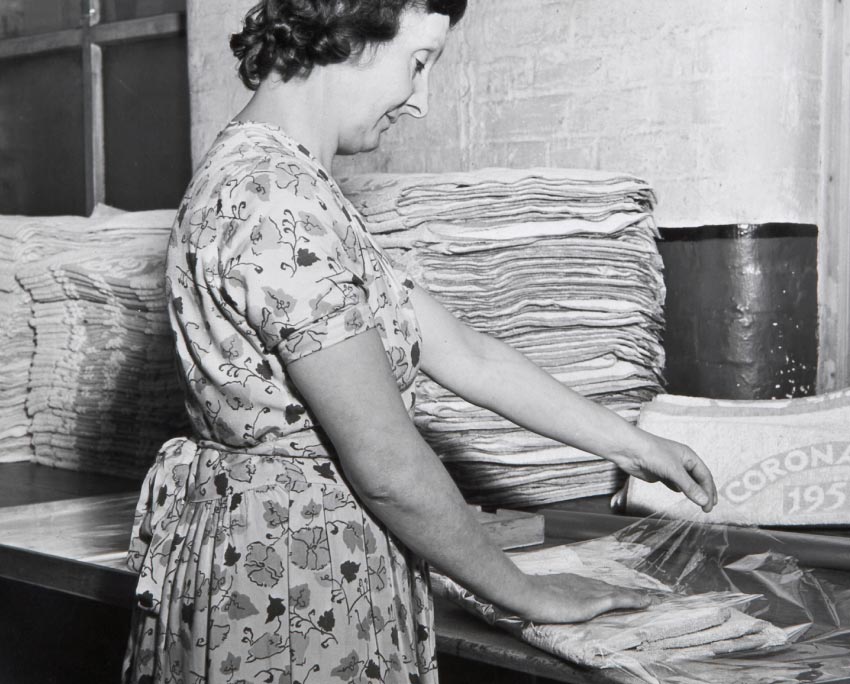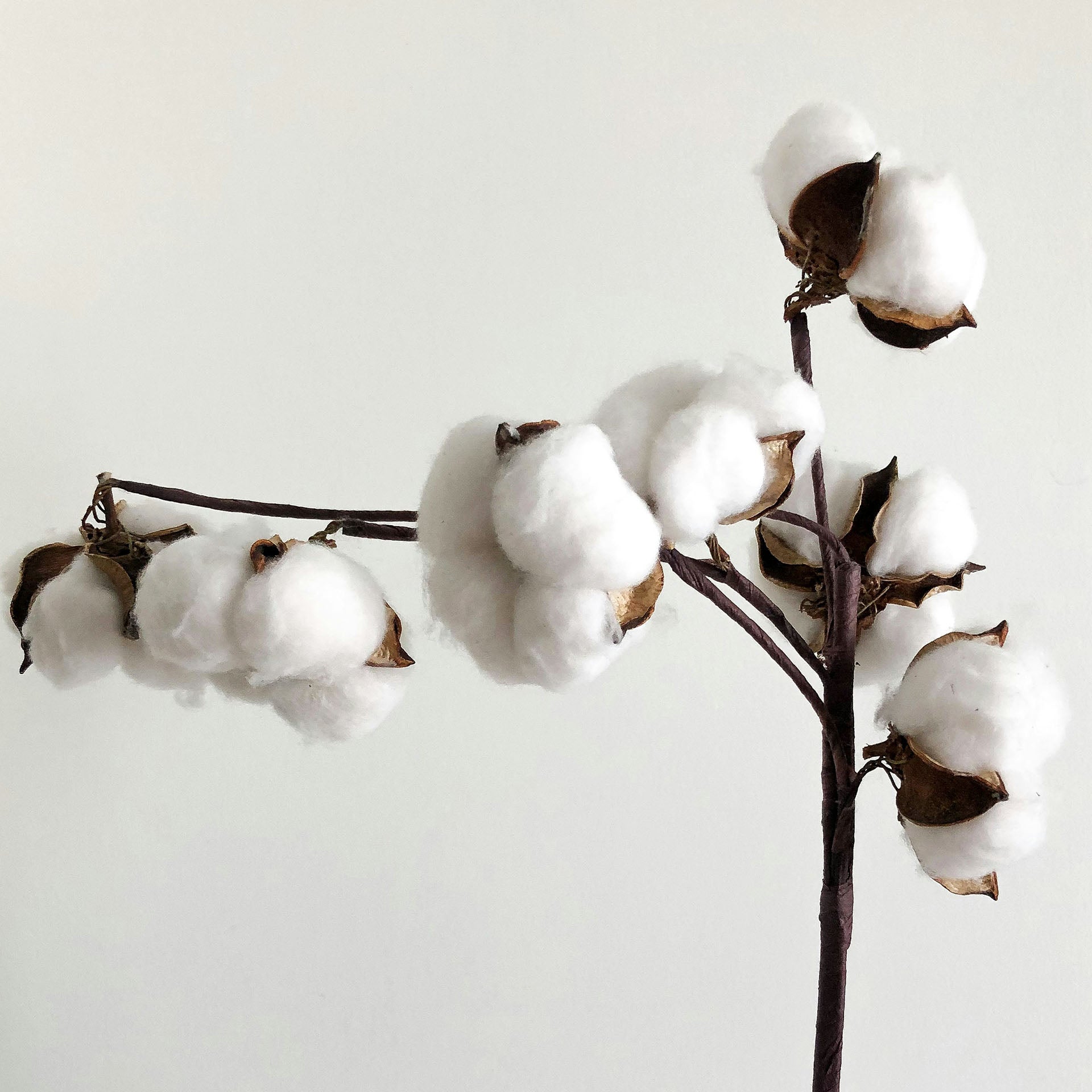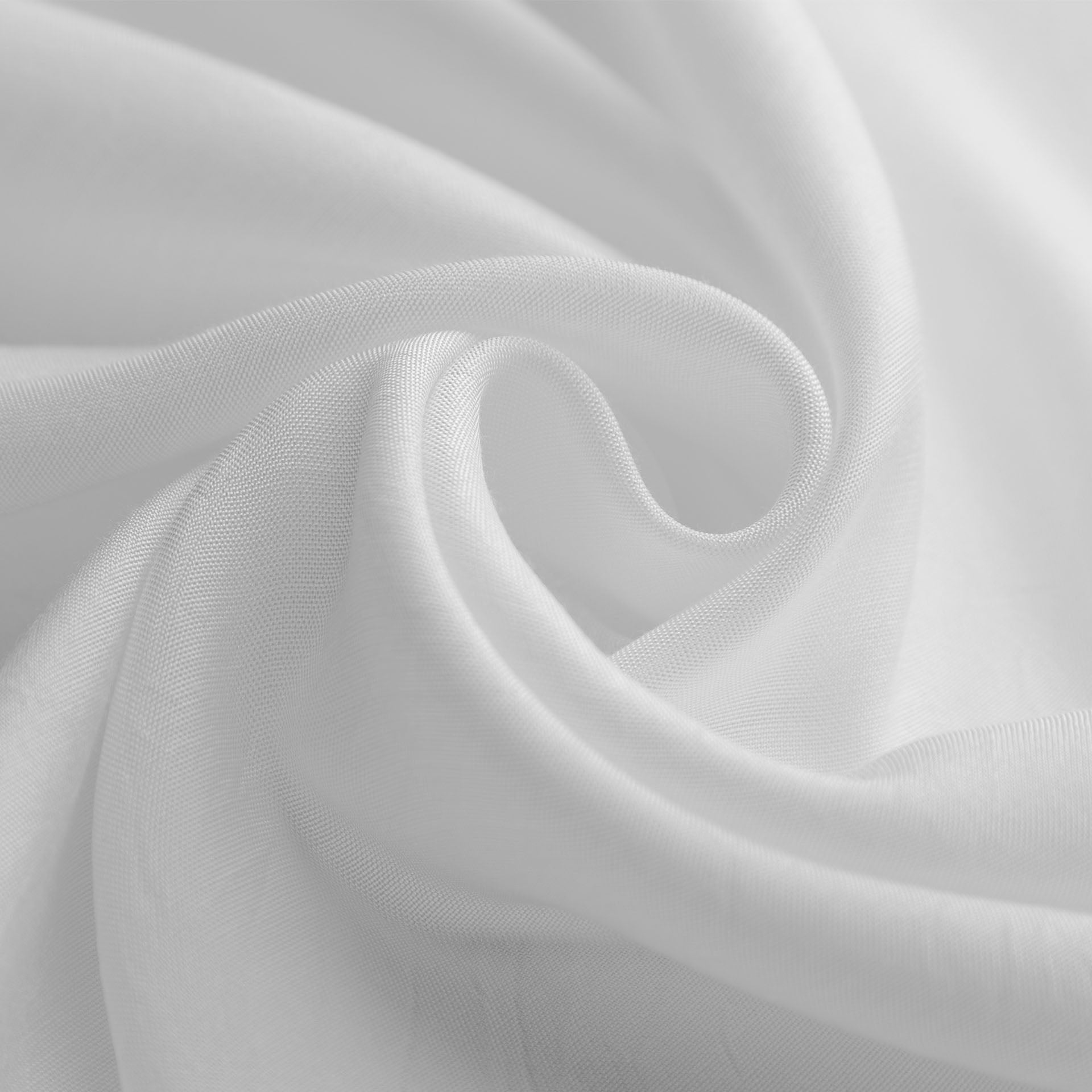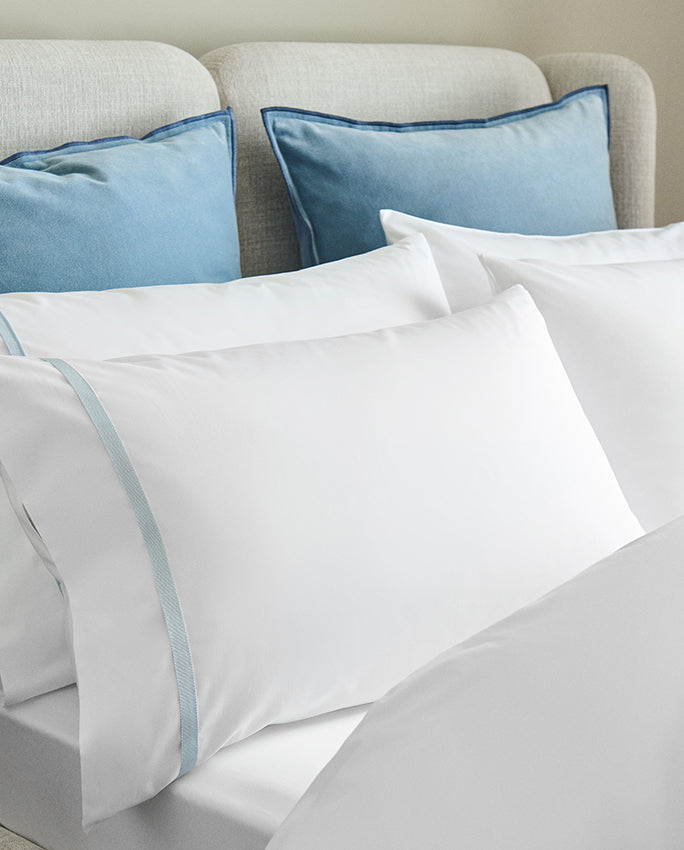4. Launder your towels in small doses
When laundry time comes round, we often want to make the most of our washing machine space and fill the drum to the brim, but this can be counterproductive and can cause your laundry to come out not as clean as you’d expect. When loading your machine, ensure there’s adequate space for your towels to tumble dry. This will change from machine to machine, but we recommend leaving an estimated towel's worth of space.
5. Removing any lingering smells
It’s completely normal for your towel to become musty and for smells to linger over time with regular use of your towel. To remove any questionable smells, add about 64 grams or ½ cup of bicarbonate of soda to your detergent tray and wash as normal. Here are some other tips to remove smells:
- Tea tree oil: Add a few drops of tea tree oil to your washing machine. Tea tree oil has antibacterial properties that can help kill odour-causing bacteria.
- Air dry your towels: If the weather is on your side, hang your towels in the sun to dry. Natural sunlight and fresh air can help kill bacteria and eliminate musty smells.
- Lavender: To keep your towels smelling fresh, add a sachet of lavender or other fragrant herbs to a linen closet or drawers.
6. Remove buildup and re-fluff your towels
Much like lingering smells, with regular use and washing, towels can lose their lustre and become stiff. This is commonly caused by a buildup of chemicals, including those found in your tap water. Thoroughly cleanse your towels by adding 230 ml or 1 cup of white vinegar to your wash. And fear not - your towels won’t smell of vinegar when you take them out!
7. Avoid brightening laundry detergents
When shopping for your detergent, avoid using laundry detergent that contains brightening agents such as bleach, alpha hydroxy acids and benzoyl peroxides. These ingredients can cause colours to fade, lead to patchy bath towels and deteriorate the fabrics, which can reduce their absorption and softness.
8. Do not use fabric softener and dryer sheets
Contrary to popular belief, softeners should not be used on your towels! Using fabric conditioner can lead to a soapy residue, which will not only decrease the softness and effectiveness of your towel, causing it to be stiff, but it can also permanently damage the threads and weave.
Similarly, dryer sheets can have the same adverse effect, causing a waxy build-up in the towel fibres. To achieve softer towels without the harmful products, try adding ½ cup of vinegar during the final rinse cycle.
9. Use warm to medium hot water on a normal washing cycle
Depending on the colours and sometimes even the patterns of your towels, different washing instructions apply. However, the general rule of thumb is to put towels through a regular cycle at a medium-hot temperature, just hot enough to kill off any bacteria and remove loose towel fibres. However, you should check the care labels for product-specific instructions.
Dark towels should always be washed with a warm water setting. Warm water is effective in removing dirt and bacteria while being gentler on the fibres of your towels, preventing them from fading and losing their colour intensity.
Light coloured towels also wash well with the hot water setting. Hot water can help to remove tough stains and brighten whites and light-coloured towels, providing a more thorough cleaning.
It’s important to note that hot water can also damage the fibres of your towels over time, so we recommend washing them in cold water every now and then.
10. Always check your washing machine settings
Most towels are made from cotton, so using the ‘normal’ or ‘cotton’ setting on your washing machine is usually appropriate. For a deeper clean, a ‘sanitise’ or ‘heavy-duty’ option can be used occasionally, but not every time, as it can be harsh on the fibres. Always remember to read the care instructions and wash care symbols on your towels, too.




